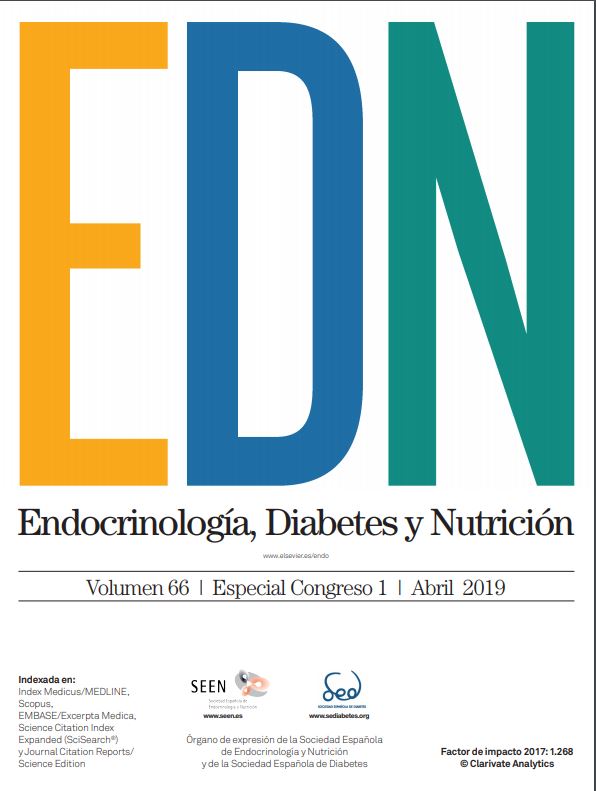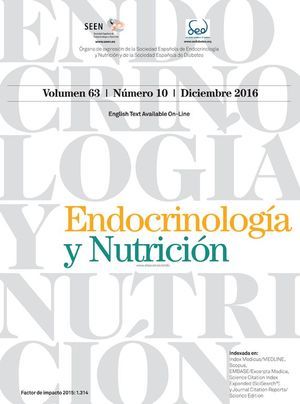P-101 - EFFECTS OF INS1E HIAPP-DERIVED EXOSOMES ON HIPPOCAMPAL CELLS: AMYLIN'S TOXICITY AS A LINK BETWEEN T2DM AND ALZHEIMER'S DISEASE
Universidad Complutense de Madrid, Madrid.
Introduction: Type 2 diabetes mellitus together with obesity through the metabolic syndrome represent a worldwide epidemic with severe complication such as vascular damage, hepatic steatosis and neurodegeneration. A key step in the ethiopathogeneis of type 2 diabetes it is the transition from prediabetes to full-blown diabetic phenotype. That transition implies an insulin secretion defect of pancreatic beta cells, the accumulation of amylin beta-sheet aggregates in human islets playing a major role. As we have previously described, high insulin demand in prediabetic stage forces pancreatic β-cell and cause ER and oxidative stress, which in fact leads to a dysfunction in folding proteins like amylin (IAPP). We have observed that overexpressed human amylin (hIAPP) induce the formation of amylin aggregates that accumulate in cytoplasm of insulinoma beta cells, increasing ER stress, impairing autophagy, unbalance the mitochondrial dynamics and inhibited mitophagy. The formation of exosomes represents a new way of intercellular communication that may potentially be used as detoxifying mechanism to eliminate toxic amylin beta-sheet aggregates.
Objectives: Exosomes are microvesicles around 30 to 150 nm that are usually secreted by cells as intercellular communication mechanism, bearing mRNA, miRNA or different proteins. We have proved that INS1-E hIAPP cells are able to secrete exosomes bearing high amount of human amylin. Thus, we hypothesized the exosomes secreted by insulinoma cells overexpressing human amylin it is a detoxifying mechanism that may contribute to deliver human amylin plaques load exosomes into the brain, which may represent a link between damage pancreatic β-cells in type 2 diabetes and damage neurons in Alzheimer disease.
Material and methods: We have used a mouse hippocampal cell line (HT-22 cells) to assess how those exosomes affect HT-22 cells ER stress, autophagy, mitochondrial dynamics and mitophagy. Exosomes were isolated from INS1-E WT, rIAPP and hIAPP cells using a commercial kit, characterized and added to HT-22 cell cultures. Finally, we analysed exosomes effect on HT-22 cells by Western Blot and immunofluorescence assays.
Results: INS1-E hIAPP cells submitted to high glucose levels stimulate amylin plaque formation. Thus, we have detected amylin beta-sheet aggregates into the cytoplasm, this accumulation being aggravated when autophagy or ubiquitin proteasome system (UPS) are blocked. In addition, mouse hippocampal HT-22 cells exposed to hIAPP-exosomes and treated with oxidative stressors showed an impairment in autophagosomes elimination, as well as a tendency to mitochondrial fission in damage mitochondria.
Conclusions: Our results suggest that exosomes are generated by INS1E hIAPP insulinoma cells as a detoxifying mechanism to eliminate toxic amylin beta-sheet aggregates. These exosomes could be a vehicle to carry on these toxic products to other cell types such as hippocampal cells, aggravating or accelerating neurodegenerative processes, and establishing a possible etiopathological link between T2DM and neurodegenerative diseases.






